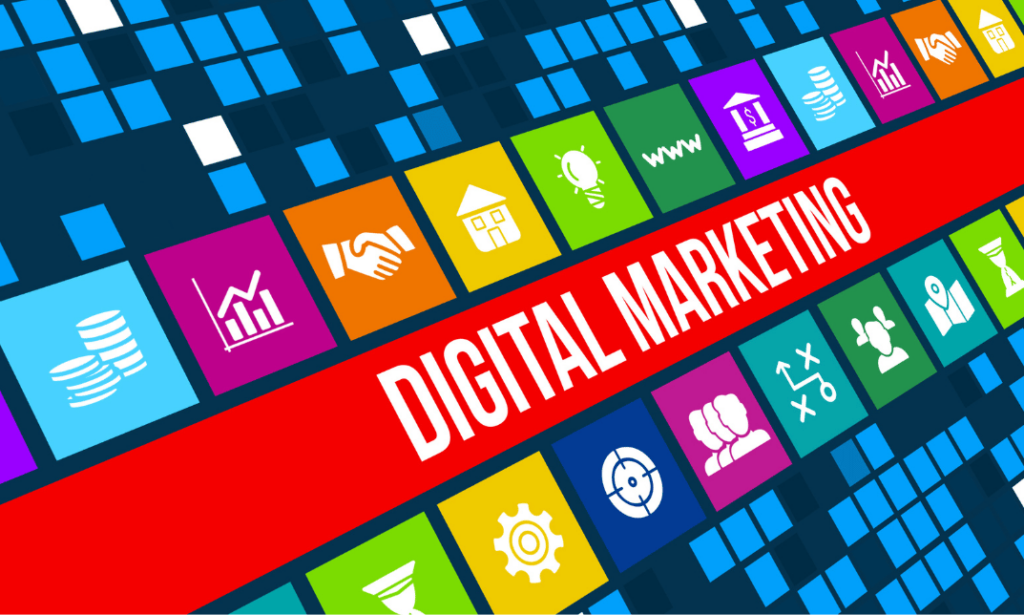
Introduction
Hey there, fellow marketers and digital enthusiasts! Today, we’re diving headfirst into the exciting world of digital marketing. Whether you’re a seasoned pro or just dipping your toes into the digital marketing pool, this blog is here to equip you with ten essential tips for effective digital marketing. So grab a cup of your favourite beverage, sit back, and let’s explore the ever-evolving landscape of digital marketing together.
Tip 1: Know Your Audience Inside and Out
Effective digital marketing starts with a deep understanding of your target audience. Take the time to create detailed buyer personas that encompass demographics, interests, pain points, and behaviour patterns. The better you know your audience, the more tailored and engaging your marketing efforts can be.
Understanding your audience is fundamental to any marketing strategy. Here’s how to go about it:
Create Buyer Personas: Develop detailed profiles of your ideal customers. Include demographics (age, gender, location), interests, job titles, pain points, and goals. This helps you tailor your marketing efforts to their specific needs.
Conduct Market Research: Use surveys, interviews, and social listening to gather insights into customer preferences and behaviour.
Analyse Data: Utilise tools like Google Analytics and social media insights to track user behaviour on your website and social channels.
Tip 2: Craft Compelling Content
In the digital marketing realm, content is king. Whether it’s blog posts, videos, social media updates, or email newsletters, your content should be informative, entertaining, and valuable to your audience. Consistency is key, so establish a content calendar to keep your audience engaged.
Creating valuable content that resonates with your audience is key to building trust and engagement:
Quality Over Quantity: Focus on producing high-quality content that provides genuine value. This can include blog posts, videos, infographics, podcasts, and more.
Consistency: Maintain a regular posting schedule to keep your audience engaged and informed.
Storytelling: Use storytelling techniques to make your content relatable and emotionally engaging.

Tip 3: Embrace SEO (Search Engine Optimisation)
SEO is the magic wand that can boost your online visibility. Optimise your website and content with relevant keywords, meta tags, and high-quality backlinks. Regularly update your website with fresh, valuable content as part of your digital marketing strategy to improve your search engine rankings and attract organic traffic.
Optimising your online presence for search engines ensures that your content is discoverable:
Keyword Research: Identify relevant keywords and phrases that your audience is searching for. Use tools like Google Keyword Planner.
On-Page SEO: Optimize your website content with these keywords, including in headings, meta descriptions, and alt tags for images.
High-Quality Backlinks: Acquire authoritative backlinks to your website from reputable sources in your industry.
Digital Marketing & SEO
Tip 4: Leverage Social Media
Social media is where your audience spends a significant chunk of their time, making it a vital component of your digital marketing strategy Establish a strong presence on platforms that align with your target audience. Engage with your followers, share valuable content, and run targeted ads to expand your reach.
Social media is a powerful tool for building brand awareness and engagement:
Choose the Right Platforms: Select social media platforms that align with your target audience. For B2B, LinkedIn might be more suitable, while B2C brands may find success on Instagram or Facebook.
Engagement: Regularly interact with your followers, respond to comments, and encourage conversations.
Paid Advertising: Utilize paid advertising options on platforms like Facebook Ads or Instagram Ads to reach a wider, targeted audience.
Tip 5: Email Marketing Is Still Alive and Kicking
Contrary to what some may believe, email marketing is far from dead and remains a valuable tool in digital marketing. It remains one of the most effective ways to nurture leads and retain customers. Personalise your emails, segment your list, and provide value to your subscribers through newsletters, promotions, and updates.
Email marketing remains a highly effective way to nurture leads and maintain customer relationships:
Segmentation: Divide your email list into segments based on demographics, behaviours, or interests. This allows for more personalised and relevant content.
Automation: Use email marketing platforms to automate drip campaigns, welcome emails, and follow-ups.
Value-Centric Content: Provide subscribers with valuable content, promotions, and updates to keep them engaged.

Tip 6: Invest in Paid Advertising
While organic traffic is fantastic, don’t underestimate the power of paid advertising. Platforms like Google Ads, Facebook Ads, and Instagram Ads allow you to reach a highly targeted audience. Be sure to set clear goals and track your ROI to ensure your ad spend is worthwhile.
Paid advertising can provide a significant boost to your digital marketing efforts:
Clear Goals: Set specific goals for your ad campaigns, such as increasing website traffic, generating leads, or boosting sales.
Budget Management: Determine your advertising budget and allocate it wisely to achieve your goals.
A/B Testing: To optimise performance test different ad creatives, targeting options, and ad placements.

Tip 7: Mobile Optimisation Is Non-Negotiable
Mobile optimisation is essential in an era where almost everyone owns a smartphone. Ensure your website and content are mobile-friendly, with responsive designs that adapt to various screen sizes. Google also prioritises mobile-friendly websites in its search rankings for digital marketing.
Mobile optimisation is crucial in an increasingly mobile-first world:
Responsive Design: Ensure that your website and content are mobile-friendly and responsive, adjusting seamlessly to different screen sizes.
Page Speed: Optimize your website’s loading speed on mobile devices to improve user experience.
Mobile SEO: Implement mobile-specific SEO strategies to enhance visibility in mobile search results.

Tip 8: Monitor and Analyse Your Data
Digital marketing provides an abundance of data and metrics. Use tools like Google Analytics to track your website’s performance, monitor user behaviour, and measure the success of your campaigns. Regularly analyse this data to make informed decisions and adjust your strategies accordingly.
Data analysis is the key to making informed decisions and refining your strategies:
Key Metrics: Identify the key performance indicators (KPIs) that align with your goals. This could include website traffic, conversion rates, click-through rates, and more.
Regular Reporting: Create regular reports to track progress and identify areas for improvement.
A/B Testing: Experiment with different elements on your website and in your campaigns to see what works best.

Tip 9: Stay Ahead of Trends
The digital marketing landscape is ever-changing. To stay competitive, you need to stay informed about industry trends and emerging technologies. Attend webinars, read industry blogs, and network with other professionals to ensure you’re always in the loop.
Digital marketing is an ever-evolving field, so staying informed is crucial:
Industry Blogs: Follow industry blogs and publications to stay updated on the latest trends and best practices.
Webinars and Conferences: Attend webinars, conferences, and workshops to gain insights from experts and network with peers.
Networking: Connect with other professionals in your field through social media and industry events.

Tip 10: Build Relationships, Not Just Transactions
In the digital age, building genuine relationships with your audience is paramount. Engage with your followers on social media as part of your digital marketing strategy, respond to comments and messages, and foster a sense of community. This human touch can set you apart from competitors and create loyal customers.
Building meaningful connections with your audience can set you apart from the competition:
Engagement: Actively engage with your audience on social media by responding to comments and messages.
Community Building: Foster a sense of community around your brand by encouraging discussions and user-generated content.
Customer Feedback: Listen to customer feedback and use it to improve your products or services.

So there you have it—ten tips to help you navigate the vast and ever-evolving world of digital marketing. Remember that digital marketing is not a one-size-fits-all solution. What works for one brand may not work for another, so don’t be afraid to experiment and adapt your strategies based on your unique goals and audience.
Incorporating these tips into your digital marketing strategy can help you create a well-rounded and effective approach that connects with your audience, drives results, and keeps your brand relevant in the ever-evolving digital landscape. Remember that successful digital marketing is an ongoing process of learning, adaptation, and refinement.
What are some examples of digital marketing?
Here are a few examples of digital marketing:
- Website marketing: This includes creating a website that is optimised for search engines, using pay-per-click (PPC) advertising to drive traffic to your website, and using social media to promote your website.
- SEO: This is the process of optimising your website so that it ranks higher in search engine results pages (SERPs). This can be done by using relevant keywords throughout your website and building links to your website from other high-quality websites.
- Social media marketing: This involves creating social media profiles for your business and using them to connect with your target audience. You can use social media to share content, promote your products or services, and run contests.
- Email marketing: This involves collecting email addresses from potential customers and sending them emails about your products or services. Email marketing can be a very effective way to nurture leads and convert them into customers.

Extra Bonus Tips to Boost Your Digital Marketing Strategies
- Define your goals: What do you want to achieve with your digital marketing efforts? Are you trying to increase brand awareness, generate leads, or drive sales? Once you know your goals, you can develop a strategy that will help you achieve them.
- Know your target audience: Who are you trying to reach with your digital marketing efforts? What are their needs and interests? Once you know your target audience, you can create content that is relevant to them.
- Create high-quality content: Your content is what will attract people to your website and social media profiles. Make sure your content is well-written, informative, and engaging.
- Promote your content: Once you’ve created great content, you need to promote it so that people can find it. Share your content on social media, submit it to relevant websites, and use paid advertising to reach a wider audience.
- Track your results: It’s important to track your results so that you can see what’s working and what’s not. Use analytics tools to track website traffic, social media engagement, and email open rates.
- Be patient: Digital marketing takes time and effort to see results. Don’t expect to see overnight success. Just keep at it and you will eventually see results.
- Be consistent: It’s important to be consistent with your digital marketing efforts. This means posting regularly on social media, sending out email newsletters, and updating your website content.
- Experiment: Don’t be afraid to experiment with different digital marketing strategies. What works for one business may not work for another.
- Get help: If you need help with your digital marketing efforts, there are many resources available to you. You can hire a digital marketing agency, take online courses, or read books and articles.
- Have fun: Digital marketing should be fun and enjoyable. If you’re not having fun, it’s going to be difficult to be successful.

Conclusion:
Digital marketing is a dynamic and exciting field that offers countless opportunities for businesses to connect with their audience and drive results. By understanding your audience, creating compelling content, optimising for search engines, leveraging social media, embracing email marketing, investing in paid advertising, prioritising mobile optimisation, analysing data, staying current with trends, and building meaningful relationships, you can set yourself up for digital marketing success.
Keep in mind that the digital landscape is always evolving. Stay curious, stay innovative, and never stop learning. With dedication and the right strategies in place, you can harness the power of digital marketing to achieve your business goals and make a lasting impact in the online world. Happy marketing!
- All Courses
- QLS Endorsed Single Course1039
- Personal Development1011
- Mega Bundles368
- Management323
- IT & Cyber Security189
- Health & Safety171
- Teaching & Education163
- Employability122
- Health & Fitness101
- Business91
- Accounting & Finance73
- Health & Care66
- Law61
- Career Bundle60
- Marketing46
- Training30
- Counselling29
- Design28
- Fashion & Beauty23
- Trending Courses23
- Digital Marketing18
- Food Safety16
- Nursing12
- Psychology3
- Free QLS Endorsed Single Course2



0 responses on "Digital Marketing 101: Ten Tips for Effective Marketing Strategies"